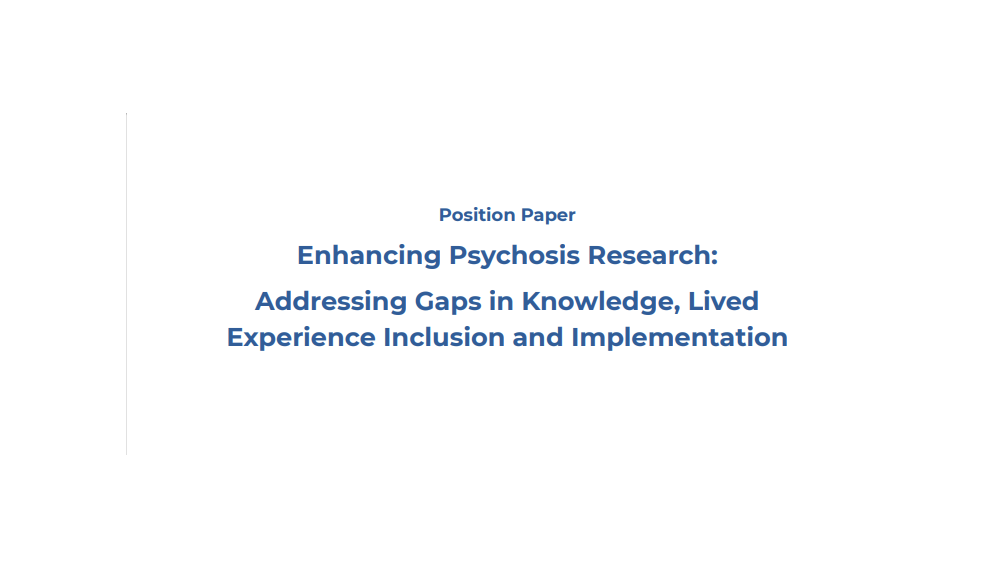New Study Validates Psychosis Metabolic Risk Calculator for Australian Youth
Researchers have found preliminary evidence of effectiveness of a new way of calculating the Metabolic Syndrome risk of young Australians with first-episode psychosis, with important implications for preventive treatment.
Dr Scott Teasdale, Senior Research Fellow in the Discipline of Psychiatry and Mental Health, UNSW Sydney, said colleagues have adjusted the Psychosis Metabolic Risk Calculator (PsyMetRiC), increasing the likelihood that those most at risk can be identified and treated promptly with effective interventions.
Dr Teasdale, lead author of the report published in Australasian Psychiatry, said the tool could revolutionise how healthcare professionals in Australia manage the physical health of young people with severe mental illnesses.
“People living with severe mental illness, such as schizophrenia and related psychoses, face significant physical health disparities,” Dr Teasdale said.
“Cardiometabolic risks, which often develop early in the course of psychotic illnesses and their treatments, are major drivers of the 13 to 15 year reduced life expectancy compared to those without mental illness.”
Introducing PsyMetRiC
PsyMetRiC was developed by Dr Benjamin Perry, senior author of the current study and Associate Clinical Professor of Psychiatry at the University of Birmingham, and Consultant Psychiatrist in the Birmingham Early Intervention Services, and colleagues to address gaps in risk prediction algorithms used in the general population.
“While cardiometabolic risk prediction algorithms are commonly used in the general population, they are unsuitable for young people with psychosis,” he said.
“These algorithms often underpredict risk and fail to account for the effects of metabolically active psychotropic medications.”
PsyMetRiC has been validated in young people with psychosis in the UK and Western Europe, reliably predicting up-to-six-year risk of metabolic syndrome, a precursor to cardiovascular disease, and all-cause mortality.
However, its applicability to Australian mental health services remained uncertain due to potential differences in baseline health, demographics, and healthcare delivery.
Australian Study Findings
Dr Teasdale said the recent study, conducted between Mindgardens Neuroscience Network (Mindgardens) and the South Eastern Sydney Local Health District (SESLHD), in collaboration with Dr Perry and colleagues, aimed to validate PsyMetRiC in an Australian context.
“A retrospective chart audit was performed on 116 young people aged 16-35 years, who were treated for first-episode psychosis between 2014 and 2022,” he said.
“This study was approved by the SESLHD Human Research Ethics Committee and provides invaluable insights to help us predict and treat cardiometabolic risks in young Australians with psychosis.”
Key findings include:
- Participants had a mean age of 20.1 years, with 67% born in Australia, 73% male, and 65% non-smokers.
- 84% were prescribed antipsychotic drugs with higher metabolic activity.
- Over a mean follow-up period of 2.6 years, 13% developed metabolic syndrome.
- The original (UK) PsyMetRiC version under-predicted risk in the Australian sample.
- An updated and recalibrated Australian version greatly improved agreement between predicted risk and actual development of metabolic syndrome.
Promising Results for PsyMetRiC-Australia
Dr Teasdale said while the results of this research are positive, more needs to be done.
“While this research demonstrates the value in using tools like PsyMetRiC-Australia, further validation in a larger sample is required to confirm its accuracy and clinical usefulness.”
Future Implications
If validated, PsyMetRiC-Australia could become an invaluable tool for healthcare professionals, enabling more personalised and effective treatment plans that consider both mental and physical health.
“This could significantly improve the quality of life and long-term health outcomes for young Australians with severe mental illness,” Dr Teasdale said.
Brings together the strengths of four founding organisations









